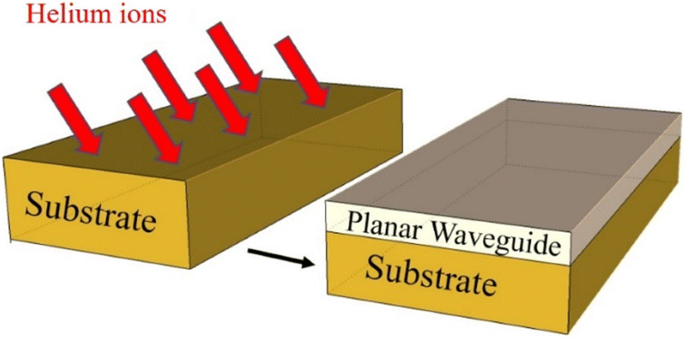In this work, an optical waveguide in the chalcogenide glass (80GeS2–15Ga2S3–5Sb2S3) is fabricated for the first time and its optical properties are investigated. A one-dimensional chalcogenide waveguide structure has been formed by 550 keV He+ ion implantation with a dose of 4?×?1016 ions/cm2 at room temperature. The effective refractive indices of the guided modes at the wavelength of 632.8 nm were measured with the aid of the Model 2010 Prism Coupler system. The refractive index profile, a critical factor in the analysis of waveguide structure, was reconstructed by the reflectivity calculation method. It was found that a positive change of refractive index occurred in the waveguide region, and an optical barrier with decreased refractive index was built at the end of the ion trajectory, i.e., producing a type of “well?+?barrier” structure. The SRIM 2013 program was utilized to display the profile of the energy loss versus the penetrated depth when the incident ion beam implanted. The near-field intensity distribution for the fundamental mode along the TE polarization was simulated through the finite-difference beam propagation method. From our experiments, these data provide a great deal of useful information about the manufacture of the chalcogenide waveguide structure.

The schematic diagram for the formation of planar waveguide by implanting 550 keV He+ ions into the chalcogenide glass. (Image by XIOPM)


